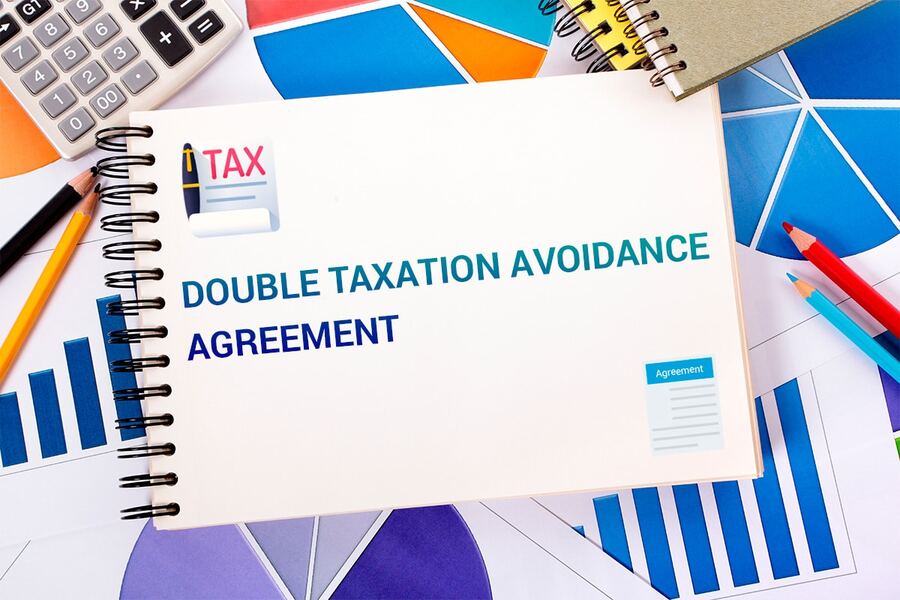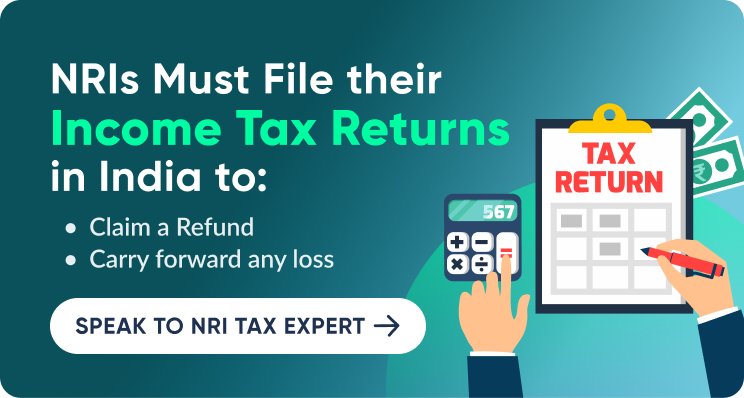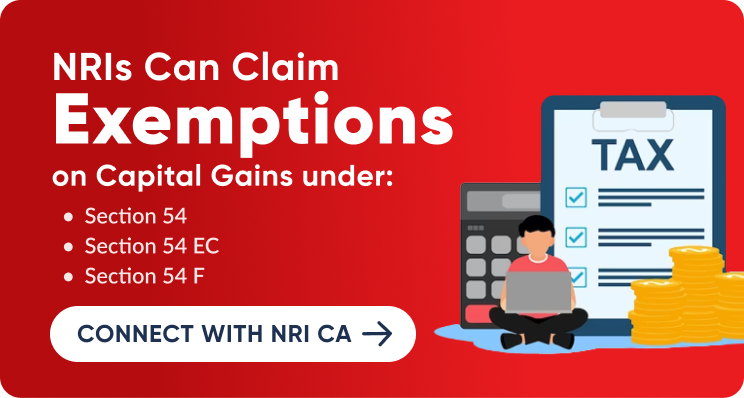For NRIs, paying taxes on the same income in both the residence country and the country where he/she works can be pretty daunting. To minimize such double taxation issues, India has signed the Double Taxation Avoidance Agreement (DTAA) with 80+ countries. It allows NRIs to avoid paying double taxes on income earned in both their country of residence and India. Under this agreement, there is a fixed tax rate set between India and other countries, based on which the tax is deducted from the income earned in India. These rates are different for each country. Scroll through the article to know more about the DTAA rates.

What is DTAA?
The Double Taxation Avoidance Agreement (DTAA), a treaty signed between two or more countries, helps NRIs to avoid paying taxes twice on the income earned in their country of residence as well as in India. For example, Mohan, an NRI, lives in the UK. He has made investments in India on which he earns returns. This income can now be taxable in both India and the UK. But because of the Double Taxation Avoidance Agreement (DTAA) signed between India and the UK, Mohan will be taxed only in one of the countries.
What are DTAA Rates?
The Double Taxation Avoidance Agreement or DTAA, signed by India with other countries, fixes a specific rate at which tax has to be deducted on income earned by the residents of that country. This implies that when an NRI earns an income in India, the TDS applicable would be according to the rates fixed in the DTAA with that particular country.

Countries that India has a DTAA with
Given below is a list of DTAA rates for particular countries that India has signed Double Tax Avoidance Agreement with- (alphabetic wise)
| Name of the Country | DTAA Rates |
|---|---|
| Albania | 10% |
| Armenia | 10% |
| Australia | 15% |
| Austria | 10% |
| Bangladesh | 10% (if at least 10% of the capital of the company paying the dividend is held by the recipient) |
| Belarus | 10% (if paid to a company holding 25% shares; otherwise 15%) |
| Belgium | 15% |
| Botswana | 7.5% (if shareholder is a company and holds at least 25% shares in the investee-company); otherwise 10% |
| Brazil | 15% |
| Bulgaria | 15% |
| Canada | 15% (if at least 10% of the shares of the company paying the dividends is held by the recipient of dividend; 25% in other cases) |
| China | 10% |
| Cyprus | 10% (if at least 10% of the capital of the company paying dividend is held by the recipient, 15% in all other cases) |
| Czech Republic | 10% |
| Denmark | 15% (if at least 25% of the shares of the company paying the dividend is held by the recipient; 20% in other cases) |
| Germany | 10% |
| Finland | 15% |
| France | 10% |
| Greece | 20% |
| Hungary | 10% |
| Indonesia | 10% (if at least 25% of the shares of the company paying the dividend is held by the recipient; 15% in other cases) |
| Iceland | 10% |
| Ireland | 10%-15% |
| Israel | 10% |
| Italy | 15% (if at least 10% of the shares of the company paying dividend is beneficially owned by the recipient company; 20% in other cases) |
| Japan | 10% |
| Jordan | 10% |
| Kazakhstan | 10% |
| Kenya | 15% |
| Korea | 15% (if at least 20% of the capital of the company paying dividend is held by the recipient; 20% in other cases) |
| Kuwait | 10% |
| Kyrgyz Republic | 10% |
| Latvia | 10% |
| Libyan Arab Jamahiriya | 20% |
| Luxembourg | 10% |
| Malaysia | 10% |
| Malta | 10% if at least 25% of the shares of the company paying dividend is held by the recipient company; 15% in other cases |
| Mongolia | 15% |
| Mauritius | 5% (if at least 10% of the capital of the company paying the dividend is held by the recipient; 15% in other cases) |
| Montenegro | 5% (in some cases 15%) |
| Myanmar | 5% |
| Morocco | 10% |
| Namibia | 10% |
| Nepal | 10% (if at least 10% of the shares of the company paying the dividend is held by the recipient; 20% in other cases) |
| Netherlands | 10% |
| New Zealand | 15% |
| Norway | 15% (if at least 25% of the capital of the company paying the dividend is held by the recipient; 20% in other cases) |
| Oman | 10% (if at least 10% of shares are held by the recipient; 12.5% in other cases) |
| Philippines | 15% (if at least 10% of the shares of the company paying the dividend is held by the recipient; 20% in other cases) |
| Poland | 15% |
| Portuguese Republic | 10% |
| Qatar | 5%-10% |
| Romania | 10% |
| Russian Federation | 10% |
| Saudi Arabia | 5% |
| Serbia | 5% (if recipient is company and holds 25% shares) otherwise 15% |
| Singapore | 10% (if at least 25% of the shares of the company paying the dividend is held by the recipient; 15% in other cases) |
| Slovenia | 5%-15% |
| South Africa | 10% |
| Spain | 15% |
| Sri Lanka | 7.5% |
| Sudan | 10% |
| Sweden | 10% |
| Swiss | 10% |
| Syrian Arab Republic | 10% (5% if shareholder is a company holding at least 10% shares) |
| Tajikistan | 10% (5% if shareholder is a company and holds 25% shares) |
| Tanzania | 10% (if at least 10% of the shares of the company paying the dividend is held for a period of at least 6 months prior to the date of payment of the dividend; 15% in other cases) |
| Thailand | 15% (if dividend is paid by an industrial company and at least 10% of capital of such company is held by the recipient; 20% in other cases) |
| Trinidad and Tobago | 10% |
| Turkey | 15% |
| Turkmenistan | 10% |
| Uganda | 10% |
| Ukraine | 10%-15% |
| United Arab Emirates | 5% (if at least 10% of the capital of the company paying dividend is held by the recipient; 15% in other cases) |
| United Arab Republic | 10% |
| United Kingdom | 15%/10% |
| United States | 15% (if at least 10% of the voting stock of the company paying the dividend is held by the recipient; 20% in other cases) |
| Uruguay | 5% |
| Uzbekistan | 15% |
| Vietnam | 10% |
| Zambia | 5% (if at least 25% of the shares of the company paying the dividend is held for a period of at least 6 months prior to the date of payment of the dividend; 15% in other cases) |

What are the Benefits of DTAA for NRIs?
Given below are some of the benefits that NRIs can avail under DTAA:
1. Dual Taxation Elimination
Under this agreement, an individual can steer clear of double taxation by having money earned overseas exempt from taxation in the nation where they reside or by receiving a credit for taxes paid abroad.
2. Profitable Investments
This agreement signed between India and other countries increases India’s appeal as a desirable location and also enables NRIs to invest freely and profit from their decisions.
3. Lower Tax Rates
As per the agreement, taxpayers can take advantage of lower rates of tax since they pay less TDS (Tax Deducted at Source) on their income earned in India.
4. Prevention of Tax Evasion
The information of a taxpayer is shared between two countries under the DTAA. Because of this, the risk of tax evasion by an individual is easily mitigated.

How can NRIs take Advantage of DTAA
NRIs can take advantage of double taxation relief in two ways given below:
1. Tax Credit Method
Suppose, Mohan is an NRI who gets paid by a UK firm. Here the source nation and home country are the UK and India respectively. When Mohan’s tax liability is calculated, the tax paid in the UK will be recognized as a tax credit against the overall tax liability. This is because India has signed DTAA with the UK. This is called the Tax Credit Method. The home country allows the NRI to obtain a tax credit of tax paid in the source country in which the income is earned.
2. Tax Exemption Method
Suppose, Mohan earns a dividend in India, the income will be taxed solely in India. Now, if Mohan earns such income in another country, the income will be taxed solely in that country and not in India. This is called the Tax Exemption Method. The income is taxed in one country and exempted in another country.
Types of Income Covered under DTAA
The following are the types of income of NRIs, where the DTAA can help them avoid paying double taxes if income from such sources is taxable in their home/ resident country :
a. Salary Income earned in India
b. Interest earned from the savings bank accounts in India
c. Fixed Deposits in India
d. Services provided in India
e. Capital Gains arising from the sale or transfer of capital assets in India
f. Any income from a real estate property located in India
To Sum Up
The Double Taxation Avoidance Agreement (DTAA) helps NRIs avoid paying taxes twice on income earned in both their country of residence and India. The rates of DTAA vary from country to country. TDS rates on interests earned for most countries range from 10% to 15%.
Contact SBNRI
For queries related to NRI tax deductions and exemptions, you can CONTACT US. You can also download the SBNRI App to connect with our NRI Tax / investment experts and get end-to-end assistance related to NRI tax filing. SBNRI will also help you get a lower TDS Certificate.



